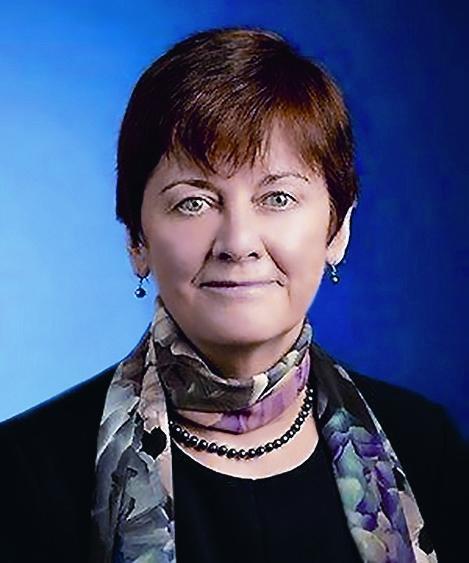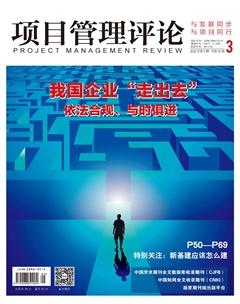APM主席苏·克肖:项目管理是一种生存技能
尉艳娟

嘉賓简介
苏·克肖(Sue Kershaw)是英国项目管理协会(APM)主席、伦敦大学学院(UCL)教授、毕马威(KPMG)基础设施咨询集团执行总监。她曾交付价值数十亿英镑的建筑、房地产和交通项目,如伦敦奥运会交通项目组合。在项目管理领域,她是一位公认的、有影响力的领导者,她的专业领域包括:高绩效团队的领导技能;基于风险方法按时间、按预算交付复杂项目集的能力;出色的协同工作技能;复杂性降解和影响决策者的能力;强大的相关方管理技能;倾听和应对挑战的能力;对管理大量公共资金的信心。
30年来,她从一位青涩的工程师成长为有影响力的项目管理领导者。她的努力得到了诸多荣誉,如“运输和物流领袖奖(2017)”“英国土木工程师学会(ICE)会员(1999)” “APM荣誉会员(2011)”等。
观点精要
项目管理是生存技能,我们生活中处处需要项目管理技能。
好的领导者是善于倾听、平易近人和谦虚的人。
高绩效团队从来都不是教科书上描述的能力和经验的完美契合点。高绩效团队由领导者和追随者组成,他们心中有共同的目标,他们团结在一起,最重要的是,他们渴望实现项目目标,并将此成就视为个人财富的一部分。
处理复杂性的秘诀是:认清复杂程度,然后分别处理。对于复杂的问题,确定哪些是关键任务,哪些人最适合在所需的时间框架内领导解决这些问题,确保整个团队理解复杂性的影响。
VUCA时代,变化是快节奏和持续的。变更管理必须是严格的、有根据的,并且决策必须记录在案。如果变更的原因不充分,团队需要重新考虑。
管理相关方时,我们要设身处地地为他们着想,了解他们的立场和关注点及他们对我们的请求的反应。对项目时间表和项目的影响要诚实。让相关方理解短期的痛苦是为了获得长期的收益。重要的是要让相关方感觉自己是项目的一部分,社区聚会和活动是一个很好的方法,把学校也包括在这种活动中很重要,因为这样才能听到年轻一代的声音。
管理大型基础设施项目的根本是,将重点放在项目启动和预先计划上,所有相关方要清楚地定义和理解项目的意图、项目的性价比(VFM)和可承受性。
我希望将“渐进式项目保证”(Progressive Project Assurance)纳入项目经理的工具箱。
我们应该重视项目发起人和项目控制者的角色。项目经理和项目发起人应清晰理解并尊重对方的角色和责任。
Interview
Part Ⅰ Project Management Journey
Q1. I noticed that you started your career by being an engineer. How did you switch to project management? Whats your story with project management? Do you enjoy what you are doing?
Sue Kershaw: I dont see it as a switch, but as a transition. After gaining chartered status with the Institution of Civil Engineers, I discovered that, although I enjoyed engineering and learning about construction and design, my passion was the management of projects and people to ensure successful delivery for the client.
Project management is based on solid logic and it is a life skill: we all need project management in our lives. Our businesses, schools and hospitals have to plan what they do, ensure there is enough budget and resource, and that the risks are managed successfully and to time. Project management is needed across all sectors to make countries successful.
I thoroughly enjoy my job: the larger, the more complex and difficult the project, the better!
Q2. As an accomplished woman in the field of project management, how do you balance work and life? What are your secrets of career success?
Sue Kershaw: I see there being three parts of my life: personal life, my work, and my professional career. These are intertwined and grow with each other. For example, business planning approaches from work lay a good foundation for planning at home; the professional approach to competencies is a bedrock for recruitment at work; understanding the needs of my kids helps me understand the needs of junior staff at work etc. The key is always to have a state of equilibrium between the three parts, and save a little “me time” for physical and mental wellbeing.
I see the secrets of my success as being curious, immersed in what I do, and mindful that teamwork is key to success. No one person ever has the monopoly on good ideas! I also think that good leaders are listening ones who are approachable and humble.
Part Ⅱ Project Management Observations
Q3. According to your observation, what are the characteristics of high-performing teams?
Sue Kershaw: High-performing teams are never the textbook perfect fit of competence and experience; they are actually a group of diverse people brought together with a common goal in mind. They are composed of leaders and followers that bond together and most importantly, they have the desire to achieve the goals of the project they are working on, and see this achievement as being part of their personal legacy.
High-performing teams respect each other, and are fully committed to delivering the outputs and outcomes of the project. Each member of a high-performing team has different strengths and weaknesses that complement each other. Good leadership is essential. A good project leader has the intent of the project clear, and the vision to deliver it, bringing the project team and stakeholders along with them on the journey. They need to be good decision-makers, and transparent and open in all their dealings.
Q4. In VUCA (Volatile, Uncertain, Complex and Ambiguous) era, simplifying complexity is a challenge. Do you have some tips to share on how to deal with complexity? And any tips on change management?
Sue Kershaw: I think VUCA is becoming more and more prevalent as our world changes and becomes constantly more disrupted. We have particularly witnessed this in the UK with Brexit.
My tips on dealing with complexity are: Recognise what is complex and what is complicated and deal with them separately. With the complex issues, ascertain which are mission critical and who is best placed to lead them in the timeframe needed. Ensure the whole team understands the impact of the complexity. By dealing with complexity like this, it becomes more manageable and less overwhelming.
In the current VUCA era, change is fast-paced and constant. Change management must be rigorous, evidenced and the decisions must be documented. If a reason for change is not sufficiently thought through, the team needs to go back and do their homework.
Q5. Would you please offer some suggestions as to how to develop strong stakeholder management skills?
Sue Kershaw: To be a good stakeholder manager, you need to put yourself in the shoes of the people you are dealing with so that you can understand their position and concerns, and how they are reacting to your requests. We all like being treated with respect. Also, there is a need to be honest on project timelines and impacts. If these are managed well and understood to be short-term pain for long-term gain, they are much more likely to be acceptable.
It is important that stakeholders feel they can be part of a project, so community gatherings and events are a good way to do this. It is also important to include schools in this engagement, so that the younger generations voices can be heard.
Q6. What have you learned from managing the London Olympic Transport portfolio? What should we pay attention to in managing such large infrastructure projects? How should we ensure the transition from project delivery to operations?
Sue Kershaw: The most important thing I learned was that driving a project by schedule to achieve an immovable deadline is extremely powerful and provides for rapid, strong decisionmaking. I also discovered that working on a project of national importance that was always in the headlines (with absolutely no option of failure) lured the best in class to the project, and we became a very close-knit team because of this. I also learned how strongly we react to change in our working focus, so moving the team from capital project delivery to operations was probably one of the most difficult tasks in the seven years I was there! However, planning this four years in advance of going operational allowed us to deliver a year earlier, and to test and refine the ops plan for Games readiness.
The fundamental aspect of managing large infrastructure projects is to really focus strongly on project initiation and preplanning. In this, the intent of the project needs to be clearly defined and understood by all, and the value for money and the affordability of the project should be crystal clear to all involved.
Part Ⅲ About Role of APM President
Q7. As the President of Association for Project Management (APM), what do you believe are the trends of project management? What are the hot topics that APM is focusing on?
Sue Kershaw: My goals as President are to establish project management as a profession, with APM as its unified voice. I also want to include progressive project assurance (i.e. assuring projects in real time to make sure issues do not become problems - the antithesis of audit) into the project managers kit of tools.
APMs vision is to have a world in which all projects succeed and that project management is a life skill. We want to continue to grow and diversify our membership and chartered cohort, and use knowledge and research to guide our thinking. We realize that we need to continuously become more dynamic and agile to respond to a world of constant change, and make sure the most appropriate people are available for all parts of a project lifecycle. Project managers are an important part of the project community, but we need to respect the role of sponsors and project controls too.
Q8. As shown by many surveys, sponsors are essential to project success. How do you see the role of project sponsors?
Sue Kershaw: The role of sponsors is fundamental to the success of a project. They are accountable for successful delivery, owning the business case and high-level stakeholder relationships. They are also the advocate for the project. The relationship between the sponsor and project manager needs to be a marriage whereby they clearly understand and respect each others roles and responsibilities.

